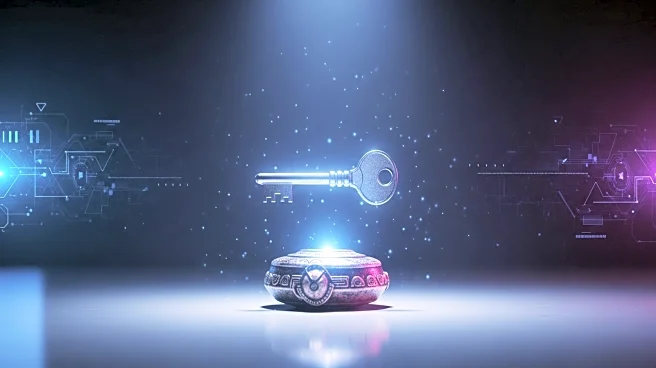What's Happening?
Atari has released a new metroidvania game titled 'Adventure of Samsara' on September 4, coinciding with the release of the highly anticipated 'Silksong'. Despite the competition, 'Adventure of Samsara' has managed to capture attention with its nostalgic ties to the 1980 Atari 2600 game 'Adventure'. The game features a pixel art style and offers a blend of fantasy and sci-fi elements, with players taking on the role of a 'Solar Champion' tasked with reactivating an interdimensional fortress. The game includes exploration, combat, and puzzle-solving elements, reminiscent of its predecessor but with modern enhancements.
Why It's Important?
The release of 'Adventure of Samsara' highlights Atari's strategy to leverage nostalgia while introducing new gameplay experiences. This move could attract both retro gaming enthusiasts and new players, potentially boosting Atari's presence in the competitive gaming market. The timing of the release, however, poses challenges as it competes with 'Silksong', a game with significant pre-release buzz. The success of 'Adventure of Samsara' could influence Atari's future projects and its approach to reviving classic IPs. Additionally, it reflects the ongoing trend of blending retro aesthetics with modern gaming mechanics, appealing to a diverse audience.
What's Next?
The reception of 'Adventure of Samsara' will likely determine Atari's future endeavors in the gaming industry. Positive feedback could encourage the company to continue reviving classic titles with modern twists. The gaming community's response will also be crucial in assessing the viability of releasing games alongside major titles like 'Silksong'. Atari may need to strategize on marketing and timing to maximize the impact of future releases. Furthermore, the game's performance could influence other developers considering similar nostalgic revivals.
Beyond the Headlines
The release of 'Adventure of Samsara' raises questions about the sustainability of nostalgia-driven game development. While it can attract initial interest, the long-term success of such games depends on their ability to innovate and offer unique experiences beyond mere nostalgia. This trend also highlights the cultural impact of classic games and their enduring influence on modern gaming. As developers continue to explore this space, ethical considerations around intellectual property and creative originality may come to the forefront.









